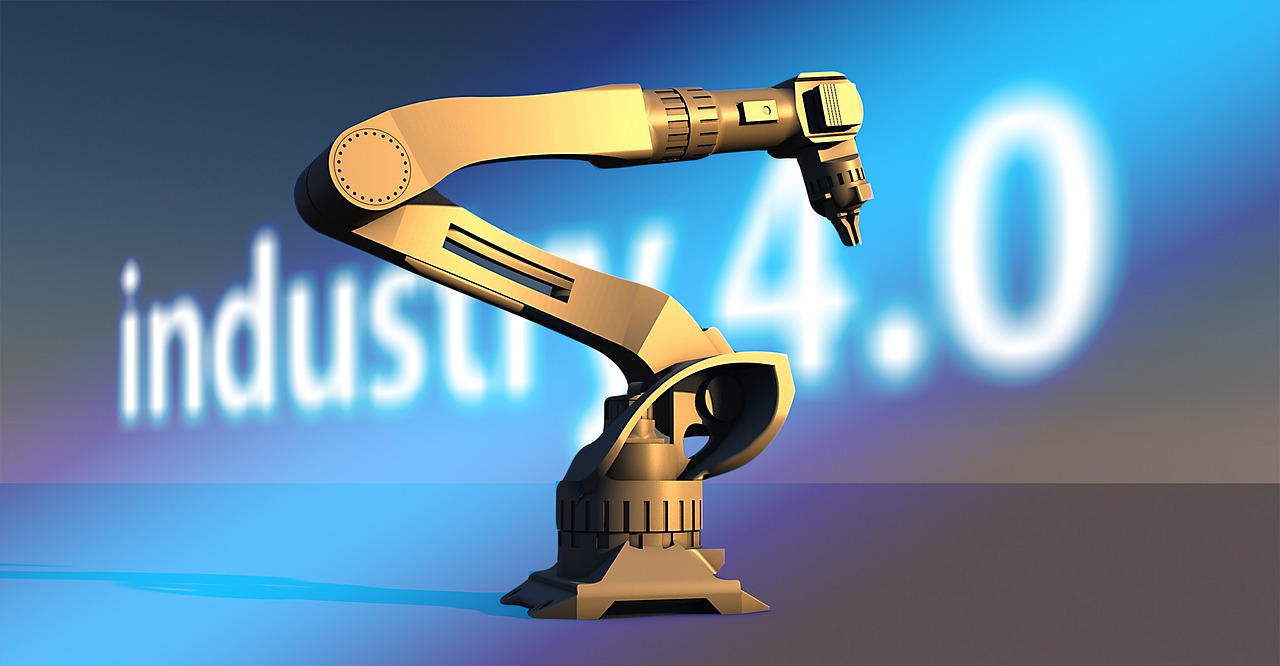Industry 4.0: The Future of Manufacturing in 2025

Industry 4.0, also known as the Fourth Industrial Revolution, is transforming industries through the integration of cutting-edge technologies such as IoT, AI, Big Data, robotics, and more. It represents a shift from traditional manufacturing to smart, interconnected systems that enhance efficiency, flexibility, and innovation.
As we step into 2025, Industry 4.0 continues to open doors to unprecedented opportunities for businesses, governments, and individuals. This blog will explore the key aspects of Industry 4.0, notable tools and software driving this revolution, and the prospects awaiting stakeholders in the near future.
Core Technologies of Industry 4.0
- Internet of Things (IoT): Enables devices to communicate and exchange data, fostering a connected ecosystem.
- Artificial Intelligence (AI) and Machine Learning (ML): Enhances decision-making processes and automates complex tasks.
- Big Data and Analytics: Facilitates real-time data analysis to optimize operations.
- Cloud Computing: Ensures scalable, cost-effective data storage and processing.
- Additive Manufacturing (3D Printing): Revolutionizes production by allowing on-demand manufacturing of complex parts.
- Cyber-Physical Systems (CPS): Integrates physical and digital systems for seamless interaction.
- Robotics and Automation: Streamlines repetitive processes and boosts productivity.
- Blockchain: Enhances transparency and security in supply chains.
Top Tools and Software for Industry 4.0
Here are some of the most impactful tools and software driving the Fourth Industrial Revolution:
1. IoT Platforms
- ThingWorx: A comprehensive platform for developing IoT applications and solutions.
- AWS IoT Core: A cloud-based service for connecting IoT devices to the AWS cloud.
2. AI and Machine Learning Tools
- TensorFlow: An open-source ML framework widely used for AI applications.
- IBM Watson: Offers AI-powered tools for automation and data analysis.
3. Big Data and Analytics Platforms
- Tableau: A data visualization tool to simplify complex datasets.
- Apache Hadoop: Open-source software for distributed storage and big data processing.
4. Cloud Computing Services
- Microsoft Azure: A leading cloud platform offering diverse services.
- Google Cloud Platform (GCP): Enables seamless cloud integration for enterprises.
5. Additive Manufacturing Tools
- Ultimaker Cura: Free slicing software for 3D printing.
- Autodesk Netfabb: Advanced software for additive manufacturing.
6. Cybersecurity Solutions
- Splunk: Provides security analytics and threat detection.
- McAfee MVISION: Offers robust endpoint security.
Opportunities in 2025
1. Smart Manufacturing
Smart factories equipped with advanced robotics, IoT, and AI are poised to dominate. Businesses can achieve:
- Reduced production costs.
- Enhanced product quality.
- Real-time monitoring and predictive maintenance.
2. Personalized Products
Additive manufacturing and AI will enable mass customization, catering to specific consumer needs. Sectors like healthcare, automotive, and fashion are expected to lead this trend.
3. Sustainable Practices
With an emphasis on sustainability, Industry 4.0 tools can:
- Minimize waste through precise manufacturing.
- Reduce energy consumption with AI-driven optimization.
- Promote circular economies by tracking materials via blockchain.
4. Enhanced Workforce Training
The rise of virtual reality (VR) and augmented reality (AR) tools provides immersive training solutions. For instance:
- Pico Interactive: Delivers cutting-edge VR headsets for workforce training.
- HoloLens by Microsoft: Combines AR and AI for hands-on learning.
5. Data-Driven Decision Making
With real-time insights from IoT and analytics platforms, businesses can:
- Optimize supply chain operations.
- Anticipate market trends.
- Reduce downtime through predictive maintenance.
6. Opportunities for Startups
Startups leveraging Industry 4.0 technologies can tap into vast markets. Areas ripe for innovation include:
- Smart home solutions.
- Green tech and energy optimization.
- AI-powered logistics.
Conclusion
Industry 4.0 is more than just a technological revolution; it’s a transformative journey reshaping how businesses operate, innovate, and compete. With 2025 on the horizon, the integration of these advanced technologies will unlock new opportunities, drive efficiencies, and pave the way for sustainable growth.
To stay competitive, businesses and professionals must embrace this revolution, invest in the right tools, and prepare for a future where innovation and adaptability reign supreme.


